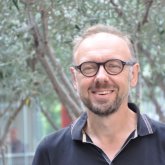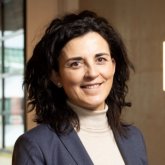PHD POSITION ON MULTILAYER GROWTH OPTIMIZATION BY HYBRID X-RAY METROLOGY (MOXY
At the XUV group of University of Twente, we are looking for a bright, enthusiastic, PhD student to strengthen our team and join us in developing hybrid metrology for multilayered structures, employing metrology to develop unique models of the layered structures, and ultimately using this knowledge to improve the growth of the layered structures. While the current focus of is on combining x-ray based metrology techniques (XRD, XRR, XRF), due to their non-destructive nature, we are of course open to new ideas on adding additional metrology tools to the mix!
Nanometer-thin films are enabling factors in many advanced technology fields such as photovoltaics, wear resistance, optics, and many more. Due to their thickness often being only a few nm or even below, one major challenge in designing and improving thin film devices is characterizing the properties of the synthesized nanometer thin films and their interaction with neighboring layers and their environment. In particular for complex structures such as multi-layers of alternating materials, it becomes a real challenge to uniquely extract information on their layer properties in order to understand and improve their performance.
A way to “break the nanometric barrier” for structure analysis is to combine multiple techniques, picking those that complement each other. In particular the use of non-destructive techniques is important, avoiding unintentional sample modifications. Although such “hybrid” analysis should in principle be able to extract information beyond the limits of current techniques, its development is still in an early phase. There is a still need to develop reliable ways to robustly reconstruct the structural models, with an emphasis on picking and combining the right techniques, as well as quantifying the uniqueness of information obtained.
Position Overview: You will develop an in-house X-ray metrology platform capable of accurately characterizing optical contrast and interfaces inside of nm-thin multilayer mirrors. You will integrate detailed measurement procedures, data analysis instructions, and tolerance assessments, along with multi-modal model analysis.
Key Responsibilities:
- Develop and refine a hybrid metrology technique, based on an X-ray metrology platform, in order to achieve precise characterization of a multilayer structure, including their interfaces.
- Separately quantify interface morphology(roughness) and interdiffusion zones, analyze interface compound formation, and evaluate the effect of barrier layers on the formed structure and interfaces.
- Design multilayer structures tailored for specific analyses.
- Guide the process of fabrication of these structures and characterize them with X-ray reflectometry, and other surface science techniques.
- Demonstrate the correlation between the structural properties of multilayers and their performance at various wavelengths.
The project will be carried out in collaboration with an industrial partner under the umbrella of the Industrial Focus Group XUV Optics where a multidisciplinary research program on growth, characterization, and application of thin filmed devices primarily for optical application is being carried out.
Information and application
Your reaction should include an application/motivation letter, emphasizing your specific interest and motivation, a detailed CV, a publication list, contact details of referees, and an academic transcript of B.Sc. and M.Sc. education. An interview and a scientific presentation will be part of the selection procedure.
About the department
The XUV Optics group is embedded in the MESA+ Institute (www.mesaplus.utwente.nl), which is one of the largest nanotechnology research institutes in the world, delivering competitive and successful high-quality research. The institute employs 500 people of which 275 are PhD’s or PostDocs. With its unique NanoLab facilities the institute holds 1250 m2 of cleanroom space and state-of-the-art research equipment.
About the organisation
The Faculty of Science & Technology (Technische Natuurwetenschappen, TNW) engages some 700 staff members and 2000 students in education and research on the cutting edge of chemical technology, applied physics and biomedical technology. Our fields of application include sustainable energy, process technology and materials science, nanotechnology and technical medicine. As part of a people-first tech university that aims to shape society, individuals and connections, our faculty works together intensively with industrial partners and researchers in the Netherlands and abroad, and conducts extensive research for external commissioning parties and funders. Our research has a high profile both in the Netherlands and internationally and is strengthened by the many young researchers working on innovative projects with as doctoral candidates and post-docs. It has been accommodated in three multidisciplinary UT research institutes: Mesa+ Institute, TechMed Centre and Digital Society Institute.





